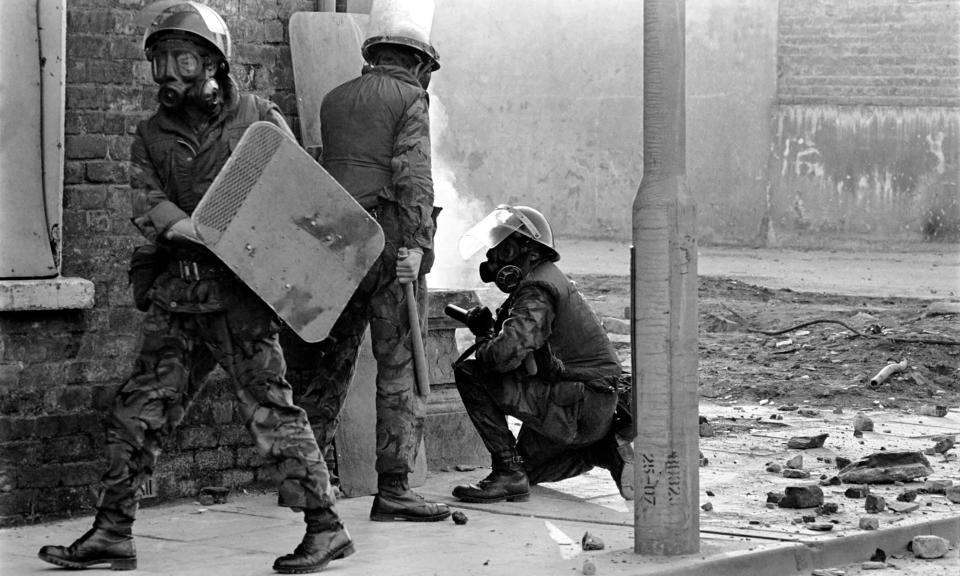Anger at reports of UK proposals to ban Troubles-era prosecutions

Politicians in Northern Ireland have condemned reports that the UK government is to ban prosecutions of British army veterans for alleged crimes during the Troubles.
Sinn Féin, the SDLP, the Alliance party and Labour accused Downing Street of betraying victims of violence and making a shameful attempt to protect security force personnel at the expense of justice.
The denunciations followed reports on Wednesday night that the government planned to move away from prosecutions for unresolved Troubles-era cases and towards a new “truth and reconciliation” model.
The proposed statutory ban on Troubles prosecutions – which would apply to members of the IRA and other paramilitary groups as well as British troops – is to be announced in the Queen’s speech next week, the Times and Telegraph reported.
According to the Times, a reconciliation process will be implemented to encourage those on all sides to talk about historical events without risk of prosecution, which will then form the basis of a report to fulfil human rights obligations and give families closure.
The paper cited a Whitehall source who denied the proposals amounted to an “amnesty” but claimed that even in cases where there was new evidence nobody would be prosecuted.
Michelle O’Neill, Sinn Féin’s deputy first minister in Northern Ireland, said her party would oppose such proposals.
“Reports that British government are to legislate for an amnesty for their state forces is another slap in the face to victims,” she tweeted. “Another cynical move that will put British forces beyond the law. This is legal protection for those involved in state murder. This is not acceptable.”
Matthew O’Toole, an SDLP Stormont assembly member, slated the scheme and its leaking to the press. “Imagine your loved one was murdered and the government decided to announce that there would be an amnesty on prosecutions – via unattributed late night briefing. We disagree on the substance, but the apparent means of announcing it is truly beyond contempt.”
This is legal protection for those involved in state murder
Michelle O’Neill, Sinn Féin
Naomi Long, leader of the centrist non-aligned Alliance party and the justice minister in the Stormont executive, tweeted: “This kind of briefing, before any meaningful engagement with victims’ families typifies the contempt with which Govt are treating victims. I believe that they deserve justice where that is possible: however, at the very least, they deserve not to learn of Govt plans on Twitter.”
Louise Haigh, Labour’s shadow Northern Ireland secretary, also condemned the plans and the manner of their announcement. “I’ve met with families, and the many victims of the conflict as they shared heartbreaking stories of loss. Ministers gave them their word. This major departure announced via late-night briefings, without a hint of consultation, demonstrates an inexcusable disregard for victims,” she said.
Unresolved killings from the Troubles have dogged policing and politics in Northern Ireland and in London, where consecutive UK governments have wrestled with whether and how to shield as many as 200 former members of the security forces from potential prosecution.
Two former British army paratroopers accused of murdering an Official IRA commander in 1972 were acquitted this week after their trial in Belfast collapsed, prompting renewed calls from veterans groups and Tories to end such prosecutions.
If such a proposal is unveiled during the Queen’s speech on 11 May it will coincide with the findings of a closely watched coroner’s inquest into the killing by soldiers of 11 people in Ballymurphy, a west Belfast neighbourhood, in 1971.

 Yahoo Movies
Yahoo Movies 